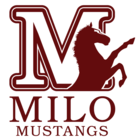Personal Communication Devices - Click here to learn more

Hello/Oki,
To build on Palliser’s communication with families a few days ago, below are the specifics regarding mandated restrictions on Personal Communication Devices (PCD’s, eg. Cell Phones, Tablets, Earbuds, Smart Watches, Gaming Devices, etc.) for Milo Community School:
Student Use:
|
Never |
Students in grades 1-6 are expected to leave their devices at home. Everyone: In pockets, in Bathrooms, on Field Trips, for taking pictures/videos of other students, communication with home during school hours (families can contact the school). |
|
Acceptable Use |
Students in grades 7-9: while outside during recess time. |
|
In Classrooms |
Never, except: students on Medical Plans (developed with the Principal). Even on Medical Plans, devices are to be kept in a designated space on the teacher’s desk, not with the student. |
* Devices are to be kept on silent and left in lockers.
Disciplinary Procedure:
|
1st Offence |
Teacher will ask the student to put their phone in their locker. |
|
2nd Offence |
Full day confiscation in a locked box in the office. After a discussion with the Principal, students can pick up their device(s) at the end of the day. Families will be notified. |
|
3rd Offence |
Full day confiscation in a locked box in the office. Families will be notified and parents/guardians will need to arrange to pick up their child's device(s). |
|
4th Offence |
Daily confiscation. Device(s) will be stored in the office all day, everyday. Families will work with the principal for remediation or further offenses. |
More detailed information will be provided during the first school council meeting on Monday, September 9, 2024 at 4:30 pm.
If you have any questions please feel free to email (sara.woofenden@pallisersd.ab.ca) or call the school (403-599-3817). We are looking forward to seeing everyone on Tuesday.
Sincerely,
Sara Woofenden LQS, B.A., B.Ed
Principal
Milo Community School
As part of the Palliser School Division, Milo School would like to acknowledge the traditional territories and oral practices of Blackfoot Nations, which includes the Siksika, the Piikani, and the Kainai. We also acknowledge the Tsuut’ina and Stoney Nakoda First Nations, the Metis Nation, and all people who make their homes in the region we serve.
